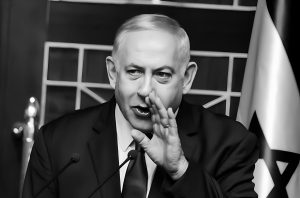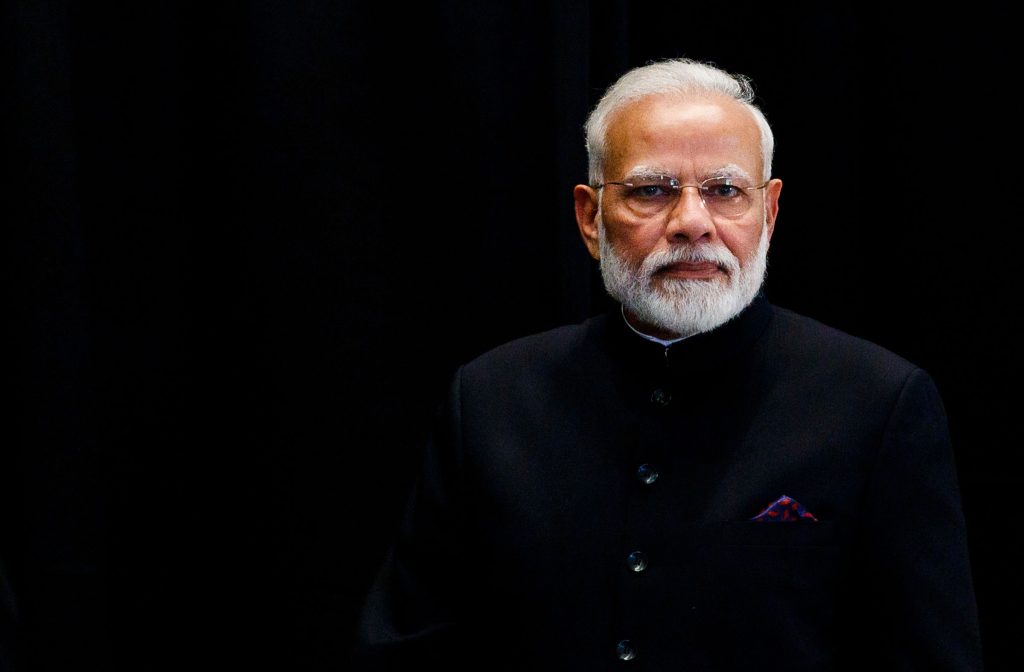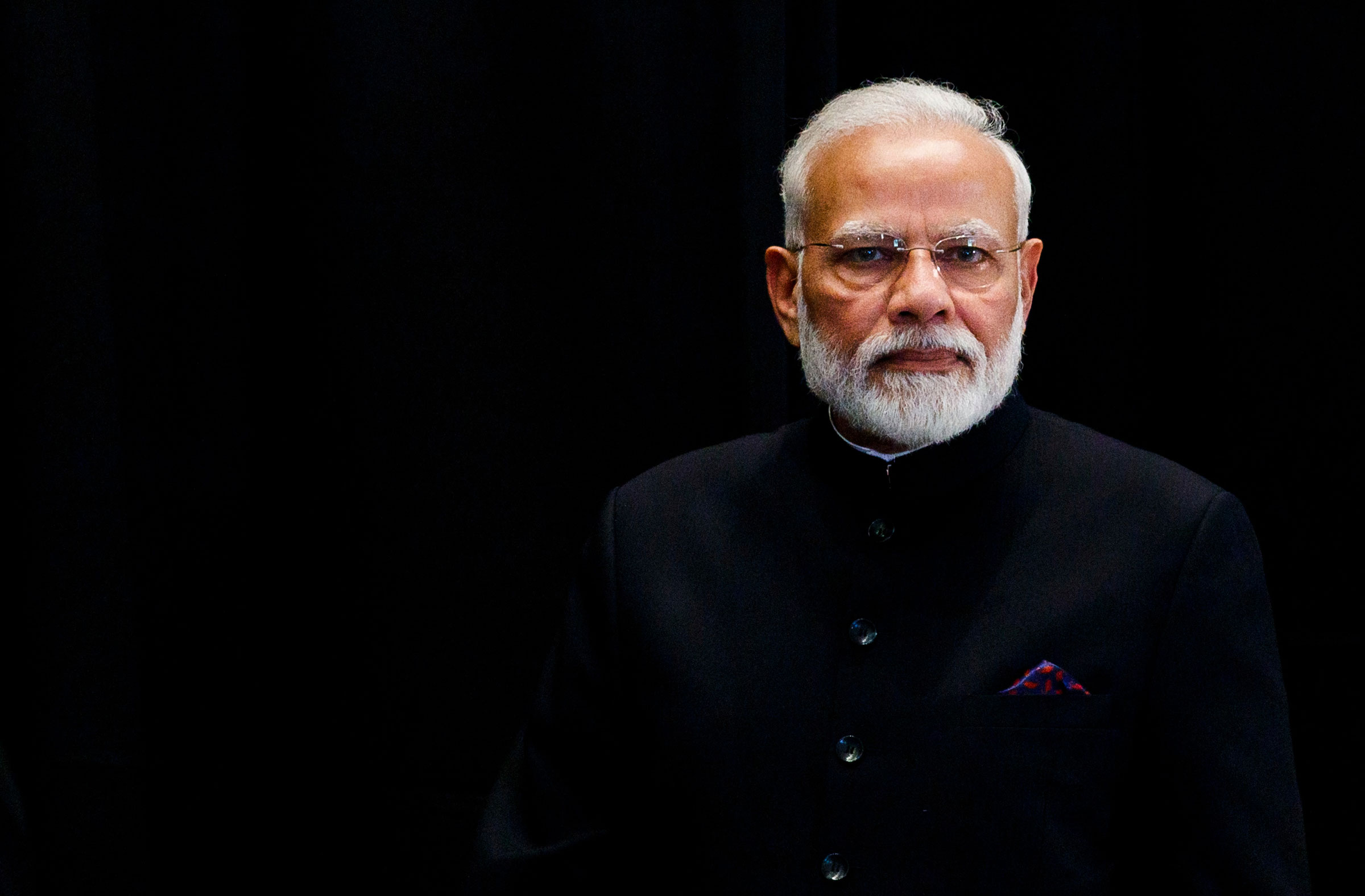
Under Modi’s leadership, India’s foreign policy pivots towards multi-alignment, focusing on economic self-reliance and strategic global partnerships, aiming for a significant role in the evolving multipolar world order.
MARCH 16, 2024

In a world where international relations and global politics fluctuate rapidly, Modi aims to navigate these challenges with tact, positioning India as an emerging superpower. This approach forms the core of India’s foreign policy, with Modi representing a “New India.” Many, including myself, agree that he has significantly revitalized India’s external affairs strategy, bolstering the economy by expanding relationships with global finance and tech networks. He has also fostered bilateral relations with superpowers such as the USA and Japan while strengthening ties in Southeast Asia through connections with neighboring countries. Despite criticism of his methods, Modi’s initiative and courage to alter the course of foreign policy are noteworthy. Since its independence in 1947, India practiced Non-Alignment, not endorsing either the US or Russia during the Cold War, despite Nehru’s strong ties with the Soviet Union.
However, as soon as the National Democratic Alliance i.e., the current Bharatiya Janata Party, came into power in 2014, Modi slowly left the shores of Cold War Era politics and joined into uncharted territories. His essential policy is called multi-alignment, where instead of the neutrality/equidistance practiced by Jawaharlal Nehru, the first Prime Minister of India; we see India forming multilateral relationships with various countries to boost important causes such as defense, economy, and fight terrorism. Modi’s government places self-sufficient economic supremacy as its main goal, with the multipolar world as its main playing ground. The careful strategy that India makes is interesting, in my opinion, since India was a country that was not really considered a “global power” in its nascent days but as a country with post-colonial ties and did not completely put their eggs in the bipolar world of the 1990s or the American hegemony of the early 2000s. However, Modi is cognizant of the changes happening in world politics and wants a piece of it too. In fact, S. Jaishankar, the External Affairs Minister, is certain this decade has been Asia’s, especially India’s Age, where he aspires to India as a valuable player in the multipolar world.
Modi’s insistence on opening up India’s potential using multilateral forums such as BRICS, G20, and QUAD, SCO to strengthen the country’s interests in sustainable economic growth, defense, maritime and energy security, and technology seems practical in the era of globalization where India though claims to encapsulate unmatchable resource and promised; needs the help of other powerful countries to cement its status in the world order, as well as its needs to tighten, if not at least maintain a peaceful relationship with its neighbors. The latter part is one of the bigger problems that India is facing at the moment.
India may be expansive in its efforts to be close to the White House, countries in the EU, the other QUAD, ASEAN, and even SCO, and go all in soft power and Indian Diaspora for networks. However, it still lacks the internal bureaucratic network that lays out the processes for foreign policy and decision-making as a base for all of Modi’s seventy-four foreign trips till now and his endeavors to form economic and strategic relationships during those trips and his policies such as Act East, Neighbourhood First Policy; focusing on Southeast and, East Asian development and also transforming NorthEast India into the Gateway of Southeast Asia; and Make in India, etc.
In spite of the large-scale liberalization comes with a catch: Modi’s all for tightening diplomatic relations, but at the end of the day, it considers the holistic, self-reliant development of India as its main goal. One of Modi’s main schticks is “Make in India,” where production is based in India; he puts forward self-reliance and places India as a “global leading power” rather than being a balancing power. So this seems normal for a sovereign state, but it leads to India sitting on the fence on more than one occasion. Especially when world politics is in a seemingly everlasting state of chaos, India’s slight indifference may seem both prudent and untactful. This leads to the other side of rising up to a position in the multipolar world.
India remained and still remains the Ukraine/Russia issue. Modi’s cabinet latent support for Israel; just days ago, the Israeli Prime Minister, Benjamin Netanyahu, met the National Security Advisor of India and abstained from voting for a ceasefire in the Gaza Strip despite the external affairs not officially releasing a statement about the October 7 attack and India’s historical support for the Palestinian cause. These instances infer that Modi’s “multi-alignment” policy has complications and still ends up in equidistance sometimes; the primary feature of non-alignment. One may say that India is trying to safeguard its interests since India has a long-standing history in spite of the current iron-clad relationship Modi has with the USA. (However, India has gotten slack from the US for relying on Russia for energy) Also, Israel is a major supplier of defense and arms supply for India.
There is also the problem of India’s immediate neighbors, which has been a hot topic of Indian foreign policy for a long time; especially in Modi’s reign, nearly all of its neighboring countries have undergone significant political changes (Myanmar, Sri Lanka, Pakistan) or had standouts with India. India has been keen on forging relationships with its neighboring nations using multilateral forums such as BIMSTEC and bilateral relations such as Bangladesh and Bhutan. Clearly, India seems to be on the rise in becoming a prominent power in the South Asian region as it envisioned in many aspects, such as trade, tourism, technological prowess, so and so forth.
However, China and Pakistan are two thorns in India’s ambitions; Modi, in his election campaigns, extensively talked about putting an end to the decades of conflict between China and Pakistan. India might have wanted to form a coalition instead of an alliance with China since cooperation with China is important to position current International politics as the Era of Asian supremacy. Both sides have tried diplomatic dialogue to solve the disputes and find a stable, peaceful agreement. However, the constant conflict at the border between the two countries in the Line of Actual Control at Ladakh and Arunachal Pradesh, with multiple border incursions with the recent one, at Ladakh in 2020 causing 20 Indian casualties, renders the latter aim impractical. Here again, accusations fly about from both sides, India is afraid of China occupying Indian territory, also fears of a Chinese monopoly in trade. Also, China is India’s largest importer, which still puts India between a rock and a hard place. Indian media blasts China as an aggressor every time any news about China comes across the discourse, but the fact is that China sees the US hegemony as its main threat to occupying prominence in the Pacific Sea and the global world order. China just wants India’s border to be stabilized and is suspicious of America’s involvement with India.
This major gap, even in interests and intentions, is not something that the Indian mass media suggests, so thus domestic politicians along with Modi and his cabinet, portray China as a passionate aggressor with India having enough potential to neutralize it. Meanwhile, India clearly underestimates China’s power, and Modi has certainly got slack for it. The Modi Government seemed disinterested even in the peace talks after the 2020 attack, where they accepted China’s terms where neither de-escalation and displacement of the Border Troops nor demarcation of the border was provided. I suggest that India is partly playing safe since a hot war with China is not exactly useful, or it needs its cooperation to draw out policy in the multilateral arena, such as BRICS, G20. However, India needs to take the upper hand in border disputes if it wants to be a “leading power,” as Modi mentioned.
This leads to a recent hot topic in Indian foreign policy about the small social media row between India and Maldives, which led to Maldives trying to expand its partnership with China and requesting Indian troops to leave is also another dent in India’s “Neighborhood Policy.” This seemed like a trivial issue at first glance, but it just showed me how modern international politics rely on soft power and social media, leading to real-life implications.
Then comes the question of Pakistan, which is considered an “existential threat” to India. Prime Minister Modi’s tough stance on Pakistan, particularly regarding cross-border terrorism, underscores the long-standing challenges in Indo-Pak relations. While engaging with Pakistan’s civilian government, Modi has avoided direct talks with the powerful military establishment. However, this approach has limitations, as the military plays a significant role in shaping Pakistan’s policies towards India. Exploring unconventional communication channels, such as dialogue between intelligence agencies, may offer a path toward meaningful engagement and conflict resolution. Ultimately, addressing the complexities of the Indo-Pak relationship requires innovative strategies that acknowledge the influence of all stakeholders. But there is hope that since Nawaz Sharif, the current prime minister of Pakistan, has had a quite cordial relationship with Modi. However, this too is far-fetched since Modi, at the end of the day, belongs to the Hindu Nationalist wing, which considers Pakistan as its ideological enemy, so he has to cross that ideological and historical divide to make amends. Moreover, Modi’s anti-Pakistan rhetoric has garnered him votes in internal elections. Along with all these factors and Pakistan’s unstable nature of government, the process for peace between the two countries is going to be a taxing, slow process.
Thus India needs to get these issues right and make peace with its neighboring nations to make Modi’s dream of a “leading power” in the multipolar world a reality. India, along with new innovations for foreign policy, needs to strengthen its domestic stronghold, including the bureaucracy, to materialize its dreams. But it seems like it is just not going to happen any time soon. India promoted a motto called “Vasudhaiva Kutumbakam,” meaning “One Earth – One Family – One Future,” at G20 (India was the host country for G20 last year) and also voiced out the same motto at the UN during the discussions related to the Middle East conflict, calling for solidarity and unity in the face of injustice and terrorism. However, Modi’s strengths lie in networking with International Organizations and bilateral ties to make India flourish; India considers defense against terrorism as a common goal and has signed multiple maritime and defense contracts with UAE, Russia, United States, Bangladesh, Israel but Modi has always put supreme importance towards economic development. So if India wants to be a major player along with China, US, does it have the guts to actually tackle the ongoing turmoil of world politics in case it really rises up to the occasion? Even if it didn’t want to, it should be equipped to understand and strategize its problems. Thus, along with developmental plans. This dilemma is something that Modi should look at on the radar if he is planning to go to the next level to acquire power.
A curated seletion of FA’s must-read stories.
Written By: SHAGNIK BARMAN
Written By: BERK TUTTUP
Written By: ABBY L’BERT
Written By: BILLY AGWANDA
Written By: HIRA SARWAR
Written By: BATUHAN GUNES
Written By: LEON REED
Written By: DARSHAN GAJJAR

Suruthi Lenin is pursuing her Master's in English with a minor in International Relations. Her interests lie in European Studies, West Asia, South East Asian studies, Conflict and Peace, Human Rights, Geopolitics, and Intelligence and Security studies. She also loves Sociology and the Renaissance, Romantic poetry, 20th-century fiction, Poetry, Film Studies, and Art History.
Written By: GABRIEL RAMIREZ
Written By: DILARA SAHIN
Written By: DILRUBA YILMAZ
Written By: NILAY CELIK
Written By: ELDANIZ GUSSEINOV
Written By: JOSEF SCHOEFL
Written By: SELCAN BEDIRHANOGLU
Written By: FATIH CEYLAN
FA’s flagship evening newsletter guilding you through the most important world streis ofthe day. Delivered weekdays.
